Eminent Telugu litterateur, Music Composer, Instrumentalist and Sanskrit Scholar
Rallapalli Ananta Krishna Sharma was a Telugu lecturer at Maharaja’s College, Mysore, for nearly three decades. He was single-handedly responsible for discovering and putting to music many popular compositions by Annamacharya, Vemana and Kshetrayya, which had till then been all but forgotten. Many of these compositions were so popular that musicians like M.S. Subbalakshmi and Balamurali Krishna sang them and made them household hits. Sharma was furthermore responsible for cataloguing scores of copper plate inscriptions and musical compositions which were in the Tirupati Temple lockers for centuries. He was a student of Bidaram Krishnappa and was trained in Mysore for nearly a decade in the early years of the last century. This is a small tribute to Karnatak Music’s much venerated treasure. —Ed
By Dr. Bhagirath S. Naganath
Rallapalli Ananta Krishna Sharma was born on 23rd January, 1893 in Rallapalli village in Kambadur taluk, Anantapur district, to parents Sri Karnamadakala Krishnamacharya and Smt. Alamelu Mangamma. Sharma was initiated into Telugu and Sanskrit literature by his father at a very young age. He had mastered classics of Kalidasa and the Telugu trio by his 12th year of age. While his father ensured that his son had a keen interest in literature, it was thanks to his mother’s persistence that Sharma’s love for music blossomed into something tangible. Rallapalli Ananta Krishna Sharma and his sister Yadugiramma routinely sang religious hymns at the Hanuman temple inside the fort at Rallapalli village.
Early life
Sharma left Rallapalli in 1905 and came to Mysore for further education. At Mysore, he stayed in the Brahmatantra Parakala Mutt where he came under the influence of Krishnabrahmatantra Swamy. By then quite old, Krishnabrahmatantra Swamy was partially blind and was struggling to read. When Sharma came under his tutelage, he was authoring a treatise on ‘Alankara Shastra’ titled ‘Alankara Manihara.’ In many respects, Sharma became his eyes and ears and would read aloud the original verses so that the Swamy could hear them better and then spell out his interpretation of the same.
Next, Sharma came under the influence of Pandit Ramashastry who was a Sanskrit scholar at Chamarajanagar. Ramashastry was able to imbibe in Sharma a keen grammatical sense of the Sanskrit language, its metre and usage. This helped Sharma to discover many forgotten compositions and hence bring them back into vogue in later years.
After this brief interlude at Chamarajanagar, Sharma returned to Mysore. Here, at the insistence of Chattamanchi Ramalinga Reddy, Ananta Krishna Sharma devoted himself once more to Telugu literature. By 1910, Reddy was a teacher at Maharaja’s College where he was teaching subjects like History, Logic, Philosophy and English Literature. As Sharma lacked formal college education, Reddy became his gateway to the academic world. Reddy’s notions of thinking and modern methodologies in teaching probably had a greater effect on Sharma than it did on his own students!
While at Mysore, Sharma would attend concerts by Veena Seshanna, Veena Subbanna, Karigiriraya, Vasudevacharya, Bidaram Krishnappa and Chikka Ramaraya. Rallapalli Ananta Krishna Sharma’s attempts at convincing some senior vocalists to take him as their student was not very successful. Exasperated, he attended a concert by Bidaram Krishnappa where he sang a composition by Tyagaraja — ‘Dyaname Varamaina Ganga Snanamu.’ Sharma was overwhelmed at the overflowing emotion and religious fervour with which Krishnappa rendered the composition and implored him to accept him as a student. To Sharma’s surprise, Krishnappa accepted him and taught him for the next few years. Sharma in his later years would describe these few years as a penance, where his guru imbibed in him a keen ear for music, while doting on him to achieve the best enunciation of the ragas in the most appropriate ‘bhava’ befitting to them. Sharma later attributed Bidaram Krishnappa’s almost divine renditions to his unwavering devotion to Lord Rama.
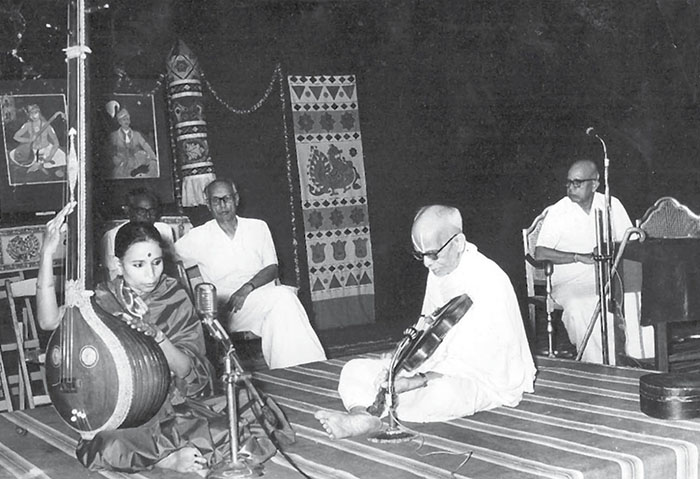
In Bangalore
From 1950 onwards, V. Seetharamaiah (V.Si.) used to organise get-togethers, where he invited some of his friends and colleagues to his home. They would spend a full day with V.Si. enjoying stimulating intellectual conversations while partaking traditionally cooked meals! The usual attendees included Motaganahalli Subramanya Sastry, H. Yoganarasimha and K. V. Raghavacharya. V.Si. often described Sharma as one who wouldn’t mince words and always held his forte.
Rallapalli Ananta Krishna Sharma settled in Bangalore in 1962. Rallapalli also used to arrange such get-togethers between 3 and 7 pm at his house where S.R. Ramaswamy, V.S. Kowshik, Magadi Gopalakannan (Editor of Prajavani) and T.V. Venkatachala Sastry used to gather. On one such occasion, Sharma delivered an almost extempore lecture on Metre (Chandassu) for two hours straight. Venkatachala Sastry, later reminisced that, even a professor who had had many hours of preparation could not have equalled Sharma in his depth of knowledge!
Sharma was invited to deliver a discourse on Ramayana at Gokhale Institute of Public Affairs at D.V. Gundappa’s request in 1960. This was a week-long affair and those who remember listening to Sharma reminisce this as a most soulful and heartfelt rendition of the great epic.
Sharma was always calm, composed and warm in his demeanour towards all. He used to enjoy reading best-sellers by Erle Stanley Gardner and James Hadley Chase as well!
Works
Rallapalli was a bridge between literary traditions of two States. He was able to offer glimpses into the veritable treasure that each State had to offer in an effortless manner. His overall output was less, considering his vast repertoire of knowledge. When asked about this, he would often say that when such titans as Valmiki, Kalidasa and the Telugu trio of Nanaiah, Tikkanna & Eranna and many others had already authored such magnificent works, what could he write that would last generations? Sharma wrote on Karnatak & Hindustani music, comparative analysis of different schools of music, literature and music, ritualistic music, music & beauty and Valmiki Ramayana.
Rallapalli authored prose works like Vemana, Natakopanyasamulu (1935) and Saraswatalokamu. Some of his notable translations are Shalivahana Gatha Sapta Saramu, ‘Arya’ of Sundarapanya, ‘Nritta Ratnavali’ of Jayapa Sena and ‘Abhitistava’ of Vedanta Deshika. Few notable works with which he was associated in an editorial capacity were ‘Panduranga Mahatmyamu’ of Tenali Ramakrishna (co-edited with Gauripedda Ramasubba Sharma), Bammera Potanna’s ‘Bhagavatam’ and ‘Brahmasri’, Subbarama Dikshitar’s ‘Sangeeta Sampradaya Pradarshini’ and Tallapaka Patalu Annamacharya’s ‘Adhyatmaka & Shringara’ musical compositions. His Kannada contributions were collections of essays titled ‘Ganakale’ and ‘Sahitya Mattu Jeevana Kale.’
[To be continued]



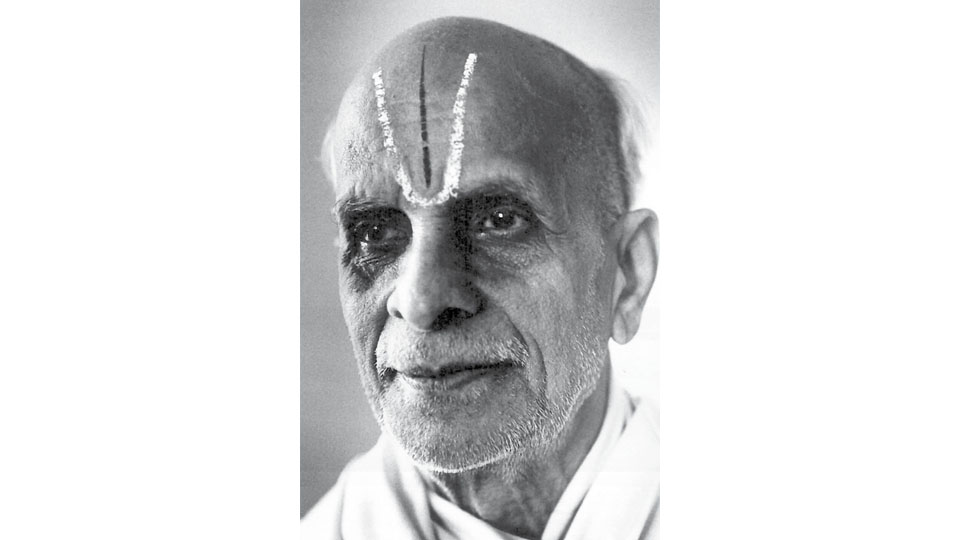
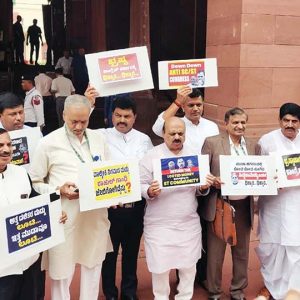
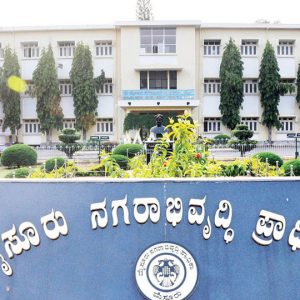
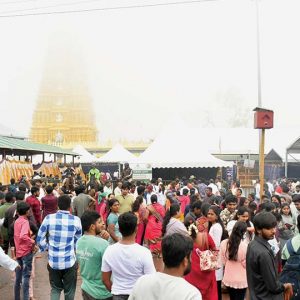
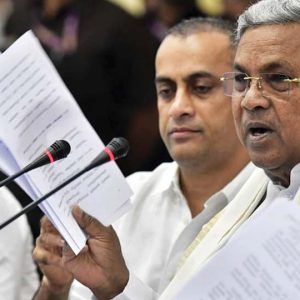
Recent Comments